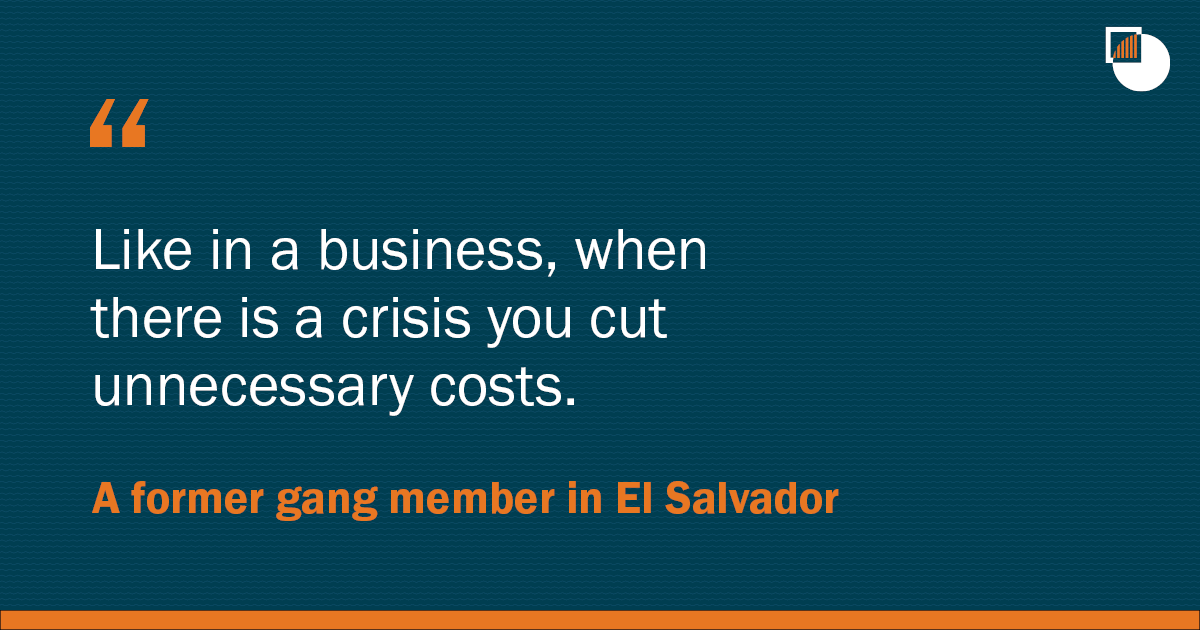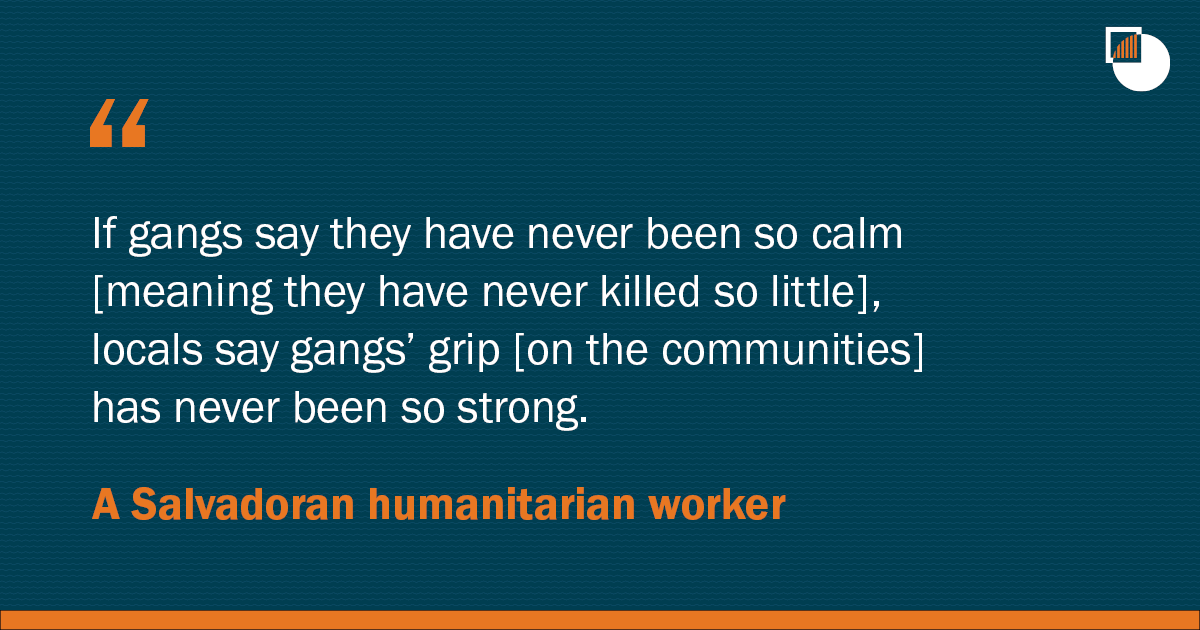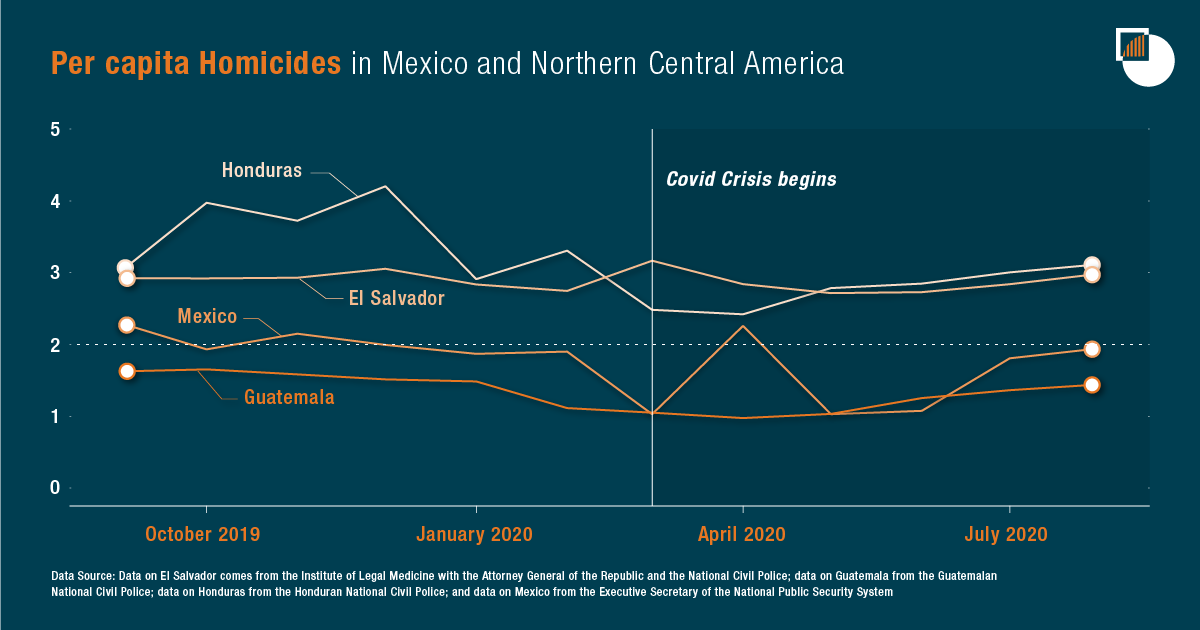Northern Central America is at a critical juncture: a steep economic downturn caused by #COVID19, devastation left by #ETA, and if not enough, violent crime back on the rise, after a short lull.
@CrisisGroup new report sheds light on this
 https://www.crisisgroup.org/latin-america-caribbean/83-virus-proof-violence-crime-and-covid-19-mexico-and-northern-triangle
https://www.crisisgroup.org/latin-america-caribbean/83-virus-proof-violence-crime-and-covid-19-mexico-and-northern-triangle
@CrisisGroup new report sheds light on this

 https://www.crisisgroup.org/latin-america-caribbean/83-virus-proof-violence-crime-and-covid-19-mexico-and-northern-triangle
https://www.crisisgroup.org/latin-america-caribbean/83-virus-proof-violence-crime-and-covid-19-mexico-and-northern-triangle
In sum: contrary to initial belief that the COVID-19 pandemic would deliver a lethal blow to organised crime, criminal groups and gangs we spoke with swiftly adapted to the new normal, and even took advantage of the circumstances to reassert or expand their territorial control.
Even before COVID-19 made landfall in the region, governments of #Guatemala, #Honduras and #ElSalvador were quick to impose strict quarantine measures and shut down borders.
This affected drug trafficking by land and air, as well as extortion, a core revenue for gangs.
This affected drug trafficking by land and air, as well as extortion, a core revenue for gangs.
But economic adaptation is certainly a renown feature of organised crime.
Drug traffickers opted for private and
and  shipments.
shipments.
Gangs reduced outlays ( ), stepped up drug peddling activities, and even meddled with/benefitted from govt-sponsored subsidies and handouts.
), stepped up drug peddling activities, and even meddled with/benefitted from govt-sponsored subsidies and handouts.
Drug traffickers opted for private
 and
and  shipments.
shipments.Gangs reduced outlays (
 ), stepped up drug peddling activities, and even meddled with/benefitted from govt-sponsored subsidies and handouts.
), stepped up drug peddling activities, and even meddled with/benefitted from govt-sponsored subsidies and handouts.
The MS-13 and 18th Street gang even exploited lockdowns to advertise themselves as champions of communities, handing out food bags/masks & forgiving some protection payments.
But their motive was not so much altruistic as pragmatic, aimed at tightening their grip on communities
But their motive was not so much altruistic as pragmatic, aimed at tightening their grip on communities

The pandemic impacted violence.
Before in extortion, many low-rank gang members began extorting w/o permission or stealing, prompting intra-gang punishments.
in extortion, many low-rank gang members began extorting w/o permission or stealing, prompting intra-gang punishments.
In #Honduras, where gangs' territories are less clearly defined, gangs (particularly MS-13) stepped up attacks on rivals
Before
 in extortion, many low-rank gang members began extorting w/o permission or stealing, prompting intra-gang punishments.
in extortion, many low-rank gang members began extorting w/o permission or stealing, prompting intra-gang punishments.In #Honduras, where gangs' territories are less clearly defined, gangs (particularly MS-13) stepped up attacks on rivals
Result: after a dip in March, homicides slowly picked up and are now back to pre-crisis levels, while extortion rackets are resurging.
Violence remains quite low in #ElSalvador, where mounting evidence suggests that an informal understanding bet/ gangs & govt may be underway.
Violence remains quite low in #ElSalvador, where mounting evidence suggests that an informal understanding bet/ gangs & govt may be underway.
In #Mexico, violence actually never slowed down, as explained in this insightful thread by my colleague @falko_ernst. https://twitter.com/falko_ernst/status/1327277237914267653
Amid the deepening economic and security crises, govts tried to contain criminal activities with temporary police deployments or stricter prison measures, with poor results.
The problem is that the pandemic is worsening the economic & institutional ills underlying the crime wave.
The problem is that the pandemic is worsening the economic & institutional ills underlying the crime wave.
Governments should use COVID emergency funds to develop regional plans that combine stepped-up service provision and job creation with protection of vulnerable populations, w/o neglecting law enforcement.
Finally, it should be in loaning institutions' and foreign donors' interest, particularly the US, to step up support & oversight to these plans, not least to help mitigate the worsening exodus of Mexicans and Central Americans fleeing the region, likely to worsen due to ETA.

 Read on Twitter
Read on Twitter




